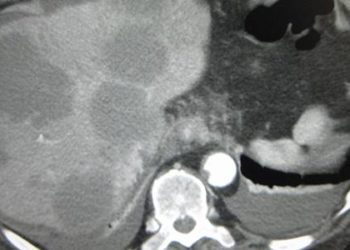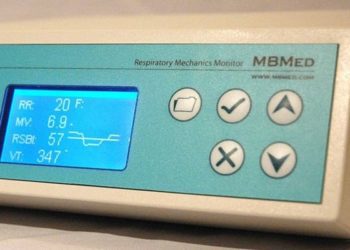Hypothermic machine perfusion reduces nonanastomic biliary strictures risk in liver transplantation
1. Patients who received a transplanted liver after hypothermic oxygenated machine perfusion had fewer nonanastomotic biliary strictures compared to static cold storage.
2. The incidence of postperfusion syndrome and early allograft dysfunction was lower in the machine perfusion group compared to the cold storage group.
Evidence Rating Level: 1 (Excellent)
Study Rundown: In liver transplantation, nonanastomotic biliary strictures are a significant complication impairing new liver function. One mechanism is ischemia-perfusion injury, and previous clinical data suggested oxygenation through a machine perfusion machine may be protective against these injuries. As such, this study determined transplanted liver function compared between hypothermic oxygenated machine perfusion and static cold preservation. The study determined patients who received livers from the machine-perfusion had significantly reduced risk of nonanastomotic biliary strictures, postperfusion syndrome, and early allograft dysfunction. The incidence of adverse events was similar between both groups. A key limitation of this trial was that it lacked power along with follow-up time to detect an effect on overall survival and graft survival. Overall, hypothermic oxygenation through machine perfusion led to fewer biliary stricture complications and early graft failure without any significant increase in adverse events compared to static cold storage.
Click here to read the study in the NEJM
In-Depth [randomized controlled trial]: This was a multicenter, randomized, open-label trial of 160 patients. Patients undergoing liver transplantation from a donor after circulatory death were included in the study. Patients were excluded if the donor’s body weight was less than 40 kilograms. Patients were randomized in a 1:1 ratio to hypothermic oxygenated machine perfusion or static cold storage, respectively. The primary endpoint was the incidence of nonanastomotic biliary strictures. Nonanastomotic biliary strictures occurred less in the machine-perfusion group compared to the standard of care (hazard ratio [HR], 0.36; 95% confidence interval [CI], 0.14-0.94; P = 0.03). Furthermore, postperfusion syndrome (relative risk ratio [RR], 0.43; 95% CI, 0.20-0.91) and early allograft dysfunction (RR, 0.61; 95% CI, 0.39-0.96) were less in the machine-perfusion group compared to the standard of care. The number of treatments for the machine perfusion group was less by almost a factor of four compared to the control group. Reported adverse events were similar (treatment group, 644; control group, 694) and of similar distribution. In general, hypothermic machine oxygenation perfusion may become standard of care for liver donors after circulatory death given the improvement in transplant outcomes without significant adverse events.
Image: PD
©2021 2 Minute Medicine, Inc. All rights reserved. No works may be reproduced without expressed written consent from 2 Minute Medicine, Inc. Inquire about licensing here. No article should be construed as medical advice and is not intended as such by the authors or by 2 Minute Medicine, Inc.







